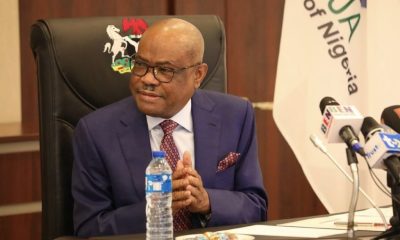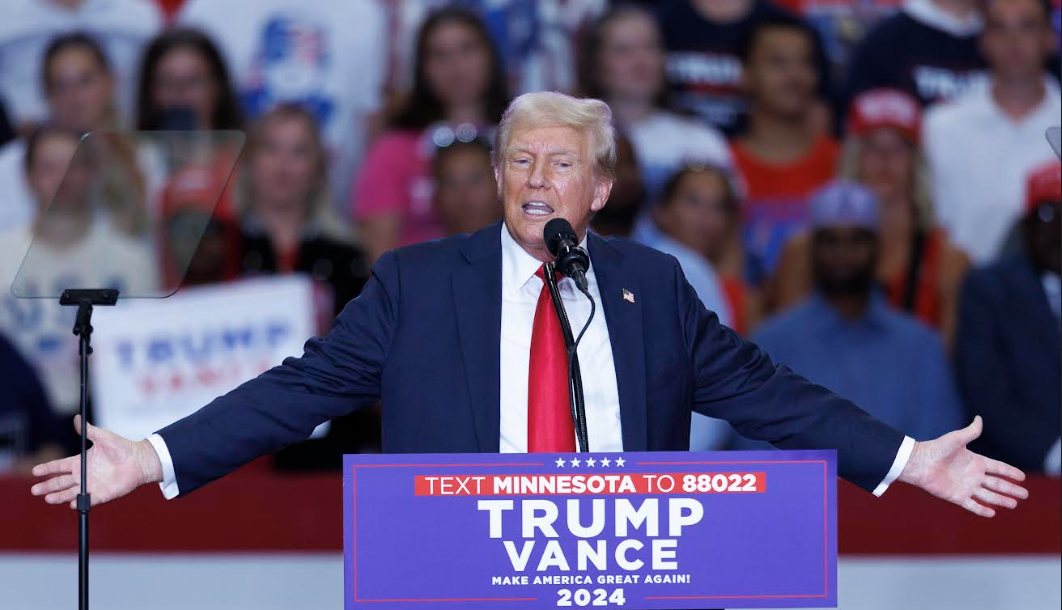With Donald Trump’s return to the White House as the 47th President of the United States, following a dramatic victory over Kamala Harris, questions are emerging about how his economic policies will affect global markets, especially Nigeria.
Trump’s “America First” economic agenda, which prioritizes domestic energy production, tariffs on imports, and low interest rates, is set to have profound implications for Nigeria, particularly in the areas of exchange rates, capital flows, inflation, immigration, and foreign aid.
Experts are closely watching how these policies might shape Nigeria’s economic landscape, especially given its heavy reliance on oil exports and remittance flows from its diaspora.
One of the immediate impacts of Trump’s economic policies could be a stronger U.S. dollar, which has significant implications for Nigeria’s exchange rate and foreign exchange reserves.
A stronger dollar typically makes it more expensive for emerging economies like Nigeria to acquire foreign currency, which may exacerbate the volatility of the naira.
As of this year, Nigeria’s naira has already depreciated by over 45%, and a further appreciation of the dollar could increase the cost of imports, particularly fuel, raw materials, and consumer goods, leading to inflationary pressures.
READ ALSO: President Bio congratulates Trump
Dr. Ngozi Okonjo-Iweala, the Director-General of the World Trade Organization (WTO), warns that “a stronger dollar will push up the cost of imported goods and services for Nigerian consumers, leading to higher living costs, and could further strain Nigeria’s already fragile foreign exchange position.”
Additionally, since a significant portion of Nigeria’s debt is dollar-denominated, a stronger dollar would increase Nigeria’s debt servicing obligations, making it harder to balance the budget and finance development projects.
Trump’s push for low interest rates—a hallmark of his first term—could encourage capital flows into emerging markets like Nigeria, particularly if the Federal Reserve keeps rates low.
In his first term, Trump’s influence on the Fed led to a series of rate cuts in response to economic pressures, including the COVID-19 pandemic.
Historically, when U.S. interest rates are low, investors seek higher returns in emerging markets, potentially directing more capital into Nigeria.
Dr. Ayo Teriba, an economist and CEO of Economic Associates, explains, “Nigeria’s bond markets, for instance, are attractive to foreign investors offering relatively higher returns compared to U.S. assets, especially if Trump keeps interest rates low in America.
This could provide a much-needed cushion for Nigeria’s foreign exchange reserves.”
However, the capital inflows into Nigeria could be countered by a stronger dollar and global market volatility, which may still push investors toward U.S. assets for safety.
READ ALSO: U.S. 2024: Indian Prime Minister, Modi congratulates Trump
Thus, the impact of Trump’s policies on Nigeria’s capital flows remains uncertain and will depend on how U.S. interest rate policies interact with global investment sentiment.
Trump’s aggressive stance on domestic energy production, including increased drilling on federal lands and a focus on reducing energy costs, may lead to sustained low global oil prices.
This could pose a significant challenge for Nigeria, which heavily relies on oil exports for government revenue and foreign exchange.
Bashir Usman, an energy economist, cautions, “Low global oil prices could severely disrupt Nigeria’s fiscal stability. If Trump’s energy policies succeed in bringing down oil prices further, Nigeria’s ability to fund its budgets or service its foreign debt could be jeopardized.”
Another key concern for Nigerians is the potential return of stringent immigration restrictions under Trump’s leadership.
During his first term, Trump’s administration imposed travel bans on several countries, including Nigeria, limiting the ability of Nigerians to travel to the U.S. for educational and professional opportunities.
If Trump reinstates such policies, remittance flows—which are a vital source of foreign exchange for Nigeria—could be impacted.
Nigerian migrants sent over $20 billion in remittances annually, and any slowdown in this cash flow could hurt Nigeria’s economy by reducing domestic consumption and straining foreign reserves.
Dr. Ugoji Eze, a migration expert at the University of Lagos, says, “Immigration restrictions would not only limit Nigerians’ opportunities in the U.S., but also undermine the flow of remittances, which has been a lifeline for many families in Nigeria.”
Trump’s “Buy American” and protectionist tariffs could impact U.S.-Nigeria trade relations, especially with tariffs potentially being imposed on Nigerian goods.
In the first half of 2024, Nigeria recorded a trade surplus with the U.S., but this could be threatened if Trump increases tariffs on imports, which may reduce U.S. demand for Nigerian goods like oil, minerals, and agricultural products.
If Nigerian exports to the U.S. decline, Nigeria could face additional pressure on its current account balance, leading to greater challenges in foreign exchange management.
Dr. Mary Okeke, an international trade expert, suggests, “If Trump pursues a protectionist agenda, Nigeria could see a reduction in trade revenues from the U.S., further complicating its foreign exchange challenges.”

 Health4 days ago
Health4 days ago
 Football1 week ago
Football1 week ago
 Business1 week ago
Business1 week ago
 News1 week ago
News1 week ago
 Business1 week ago
Business1 week ago
 Football5 days ago
Football5 days ago
 Business1 week ago
Business1 week ago
 Business5 days ago
Business5 days ago

